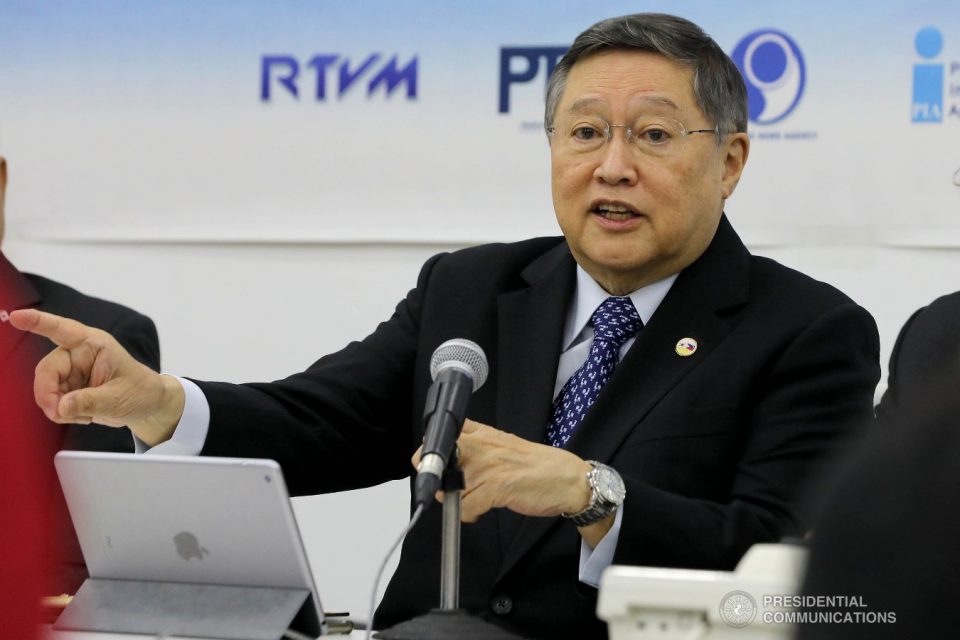
(Eagle News) — Finance Secretary Carlos Dominguez III said the government’s economic managers are pushing Congress to approve the Rice Tariffication Act as this would bring down prices of rice by around P7 per kilo and reduce inflation to below 4 percent by the second half of 2018.
Dominguez said that he and the rest of the economic team agree that the best way to address inflation is for the Congress to swiftly pass this Rice Tariffication Act.
In a press briefing in Seoul, South Korea, the Finance chief pointed out that the economic team managers of the Duterte administration are committed to socio-economic reforms.
“We, in the economic team, are of one mind that the best way to address inflation is to pass the Rice Tariffication Act. The estimates are it will bring down rice prices by around 7 pesos per kilo for the Filipino families and reduce inflation to below 4 percent by the second half of the year,” Dominguez said.
“We shall continue to prioritize investments that will improve the health and education of our people, enhance security and public order, and build world-class infrastructure,” he said.
He said sustaining the administration’s priority investments in infrastructure, public order and social services “is not an easy task,” but that the government has “to face the short-term challenges of a fast-growing economy, and we must tackle these problems in order to succeed in the long run.”
The finance chief assured the public that the government is “not casting aside” the inflation figure, which was recorded at 4.6 percent in May, as the government has put in place a “long menu of social mitigation measures” to ease the impact of high prices.
“We already know that the main contributors for inflation are higher tobacco products, the imported cost of fuel, and the higher prices of rice, corn and fish, and we are already taking steps to stay ahead of the situation,” Dominguez said.
He said that the Tax Reform for Acceleration and Inclusion Act (TRAIN), which had been blamed by critics for the inflation uptick, continues to account for only 0.4 percentage points of the inflation rate in April and May.
The 4.6 percent inflation rate for May was at the low end of the Bangko Sentral ng Pilipinas (BSP) forecast of 4.6 to 5.4 percent for that month, and also lower than the Department of Finance estimate of 4.9 percent. Dominguez said these were conservative estimates.
“I would like to emphasize that TRAIN is not the sole reason for the increase in inflation. The effect of high global oil prices driven by unfavorable geopolitical events, along with the import quotas on rice, have affected prices on a much larger scale,” the finance chief said.








